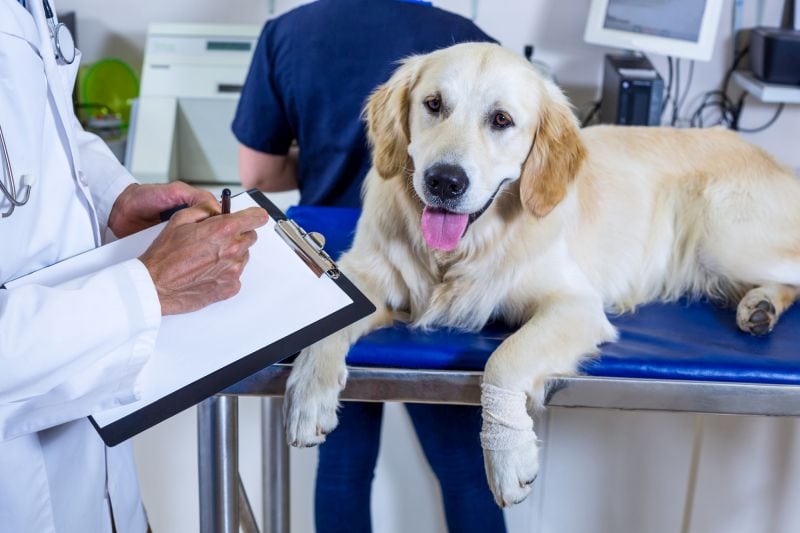As responsible pet ownership continues to grow globally, ethical breeding practices are more important than ever. One crucial aspect that separates responsible breeders from casual or backyard breeders is genetic testing before breeding. This cutting-edge approach helps minimize hereditary diseases, improve breed standards, and ensure healthier litters. But what exactly does it involve? How much does it cost? And why is it so vital?
In this article, we’ll explore the technology behind genetic testing, its cost range, and the key benefits it brings to dog and cat breeding — ensuring both animal welfare and breed integrity.
What Is Genetic Testing Before Breeding?
Genetic testing before breeding refers to the analysis of an animal’s DNA to identify potential hereditary conditions or genetic traits that could be passed on to offspring. This process allows breeders to:
-
Detect carriers of genetic disorders
-
Understand traits like coat color, size, and temperament
-
Avoid inbreeding risks
-
Make informed pairing decisions
With the increasing accessibility of veterinary biotechnology, genetic testing has become a standard practice among reputable breeders, especially for purebred dogs and cats.

Why Is Genetic Testing Important in Breeding?
1. Prevent Inherited Diseases
Many breeds are predisposed to genetic conditions. For example:
-
Golden Retrievers: Prone to hip dysplasia and certain cancers
-
French Bulldogs: Brachycephalic syndrome, spinal issues
-
Persian Cats: Polycystic Kidney Disease (PKD)
By identifying carriers and affected animals, breeders can avoid producing litters that inherit such problems.
2. Reduce Inbreeding Risks
Genetic diversity is critical for a healthy gene pool. Testing helps track lineages, ensuring that mating pairs are not too closely related, which can otherwise lead to weakened immunity and birth defects.
3. Preserve Breed Standards
Beyond health, genetic screening can ensure desired traits — such as coat type, color, or ear shape — are maintained within breed standards, supporting responsible breed development.

Types of Genetic Tests Used Before Breeding
1. Disease Screening Tests
These tests detect genes linked to specific hereditary diseases. Examples include:
-
Degenerative Myelopathy (DM)
-
Progressive Retinal Atrophy (PRA)
-
Hypertrophic Cardiomyopathy (HCM)
2. Trait Testing
This reveals non-health-related traits such as:
-
Coat length and color
-
Shedding level
-
Tail length
-
Behavior predispositions
3. Parentage Verification / DNA Profiling
To confirm the genetic identity of parents and offspring — useful in breed registries and legal cases.
4. Co-Efficient of Inbreeding (COI) Testing
COI estimates the likelihood of inbreeding by comparing genetic markers. Lower COI = healthier, more genetically diverse litters.
Technologies Behind Genetic Testing
Modern genetic tests use advanced molecular biology tools, including:
-
PCR (Polymerase Chain Reaction): Amplifies specific DNA sequences for analysis
-
Microarray Chips: Detect hundreds of gene variants at once
-
Next-Generation Sequencing (NGS): Offers whole-genome sequencing for comprehensive genetic insights
-
Bioinformatics: Analyzes large DNA datasets for pattern recognition and predictions
Companies like Embark, Wisdom Panel, Paw Print Genetics, and Optimal Selection offer breed-specific panels with high accuracy and reliable turnaround times.
How Much Does Genetic Testing for Breeding Cost?
Genetic testing prices vary depending on the type of test and the provider. Here’s a general price breakdown:
| Test Type | Estimated Cost (USD) |
|---|---|
| Single disease test | $50 – $90 |
| Full breed health panel | $130 – $200 |
| Whole genome sequencing | $300 – $500 |
| COI/Inbreeding test | $50 – $100 |
| DNA profiling / parentage | $40 – $70 |
Bulk testing packages or breeder programs often offer discounts. Most samples are collected via a simple cheek swab or blood draw, sent by mail to the lab.

Key Benefits of Genetic Testing Before Breeding
✅ Healthier Offspring
Breeding only from animals free of genetic diseases reduces the chance of producing sick puppies or kittens — enhancing their quality of life and longevity.
✅ Ethical Breeding Practices
Testing shows a breeder’s commitment to transparency, accountability, and animal welfare — which also builds trust with buyers.
✅ Cost Savings in the Long Run
Treating inherited diseases is costly and emotionally draining. Prevention through testing is a smart long-term investment.
✅ Better Breeding Outcomes
With genetic insights, breeders can strategically pair animals to improve litter quality, temperament, and compatibility with future owners.
✅ Compliance with Breed Registries
Many registries and kennel clubs require or strongly recommend testing results before breeding animals can be registered or shown.
Common Dog Breeds That Require Genetic Testing
-
Labrador Retriever: Exercise-Induced Collapse (EIC), PRA
-
German Shepherd: Hip/elbow dysplasia, DM
-
Bulldogs & Pugs: BOAS, spinal issues
-
Cavalier King Charles Spaniel: Mitral Valve Disease (MVD), syringomyelia
Common Cat Breeds That Require Genetic Testing
-
Persian & Exotic Shorthair: PKD
-
Maine Coon: Hypertrophic Cardiomyopathy (HCM)
-
Sphynx: Hereditary Myopathy, HCM
-
Bengal: PRA, Pyruvate Kinase Deficiency (PKDef)
Tips for Breeders Considering Genetic Testing
-
🧬 Choose breed-specific panels — they’re more cost-effective and relevant
-
🧾 Keep clear records of test results for transparency with buyers and registries
-
📅 Test early — ideally before sexual maturity (6–12 months)
-
🧪 Retest if needed — especially if results are unclear or new conditions emerge
-
📍 Consult a veterinary geneticist to interpret complex findings

Conclusion
Genetic testing before breeding is not just a trend — it’s a responsible breeding standard in 2025 and beyond. Whether you’re breeding dogs or cats, investing in DNA testing helps ensure healthier, more predictable, and ethically bred litters.
It supports animal welfare, strengthens your credibility as a breeder, and protects future pet owners from the heartbreak of genetically inherited conditions.
If you’re planning a litter, don’t skip this crucial step. Genetics is no longer a guessing game — it’s a science-backed strategy.
See more:
- Latest Statistics on Lifespan by Dog and Cat Breeds
- Regulations for Pet Air Travel to Europe
- Pet Transportation from Gansu to Vietnam: A Comprehensive Guide













